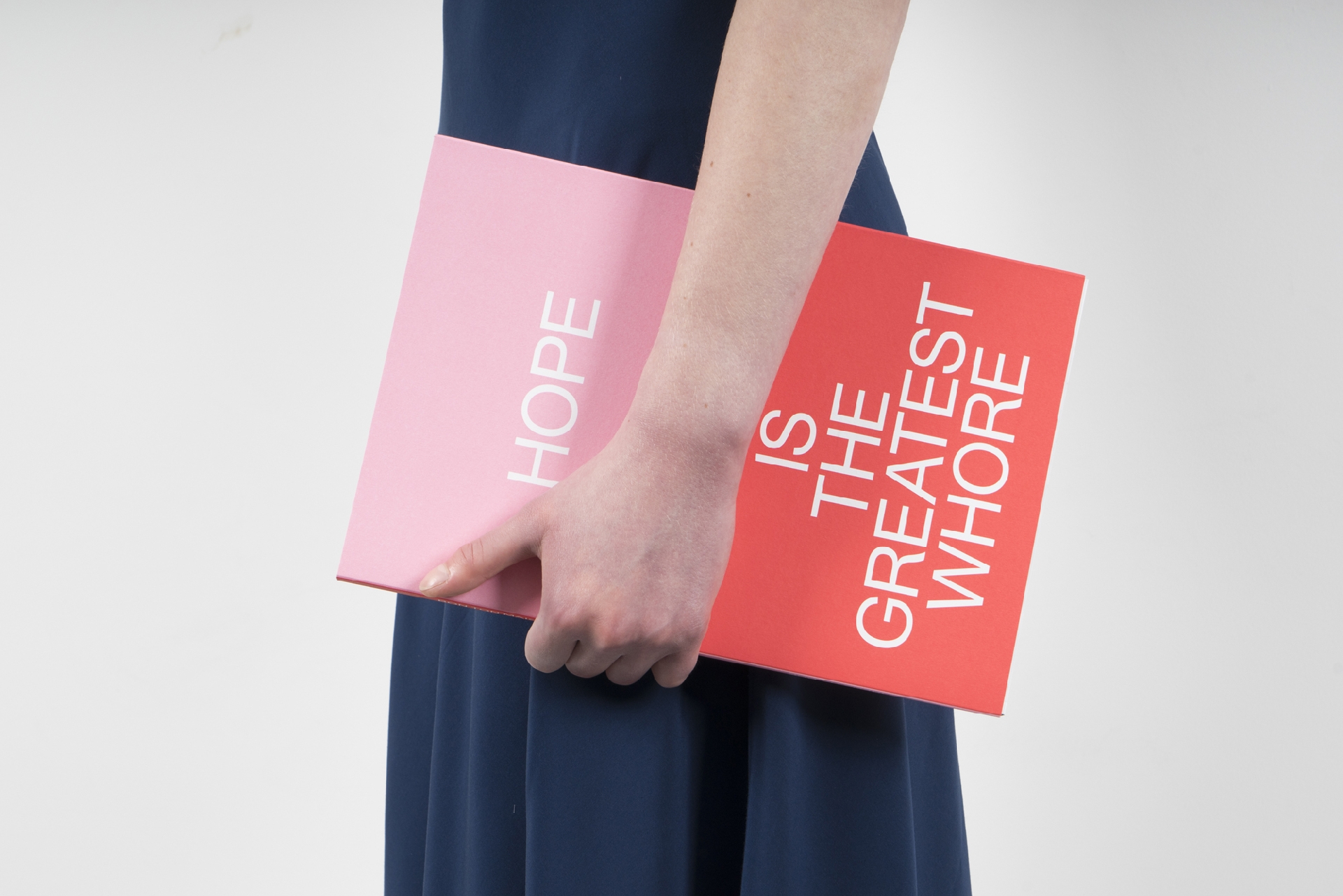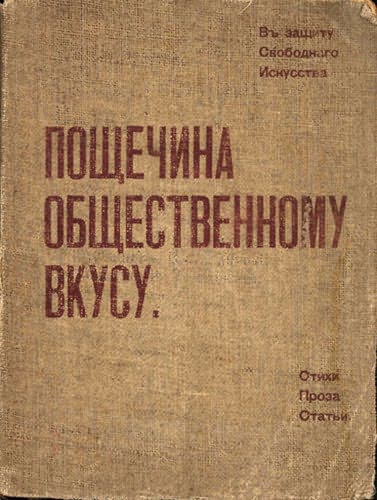Irena Haiduk: Bon Ton Mais Non (2013)
Filed under artist publishing | Tags: · art, manifesto

“An 80 point manifesto on polite art. Like every intimate dinner party, Bon Ton Mais Non requires one symphony orchestra, a pastry chef, a large mirror, and the fact of cannibal sirens.”
Publisher YugoExport, 2013
Open access
[90] pages
Alexei Kruchenykh, et al.: Victory Over the Sun (1912–) [RU, EN, DE]
Filed under booklet | Tags: · avant-garde, futurism, music, opera, russia, theatre

“Victory over the Sun (Победа над Cолнцем; Pobeda nad Solntsem) is a Russian Futurist opera premiered in 1913 at the Luna Park in Saint Petersburg.
The libretto written in zaum language was contributed by Alexei Kruchenykh, the music was written by Mikhail Matyushin, the prologue was added by Velimir Khlebnikov, and the stage designer was Kazimir Malevich. The performance was organized by the artistic group Soyuz Molodyozhi. The opera has become famous as the event where Malevich made his first Black Square painting (in 1915).
The opera was intended to underline parallels between literary text, musical score, and the art of painting, and featured a cast of such extravagant characters as Nero and Caligula in the Same Person, Traveller through All the Ages, Telephone Talker, The New Ones, etc.
The audience reacted negatively and even violently to the performance, as have some subsequent critics and historians.” (Wikipedia)
Published in Moscow, Dec 1912
28 pages
English translation
Translated by Ewa Bartos and Victoria Nes Kirby
Published in The Drama Review 15:4, Fall 1971, pp 106-124
Kruchenykh at Monoskop wiki
Wikipedia
Pobeda nad solntsem (Russian, JPGs)
Victory Over the Sun (English, 1971)
Sieg über die Sonne (German, trans. & comm. Gisela Erbslöh, 1976, JPGs/PDF, added on 2015-8-10)
Audio recording (Monoskop wiki)
Comment (0)A Slap in the Face of Public Taste: In Defense of Free Art: Poems, Prose, Essays (1912) [Russian]
Filed under book | Tags: · avant-garde, cubism, futurism, literature, poetry, russia

A famous Russian futurist book is bound in sackcloth and printed on wrapping paper. It opens with a manifesto signed by David Burliuk, Alexander Kruchenykh, Vladimir Mayakovsky, and Viktor Khlebnikov, followed by two essays by David Burliuk on cubism and on texture [both signed Nikolai Burliuk], verse by Khlebnikov and Benedikt Livshits, and four prose sketches by Wassily Kandinsky.
Poshechina obshestvennomu vkusu. V zashchitu svobodnogo iskusstva. Stikhi, proza, stat’i (Пощёчина общественному вкусу. В защиту свободного искусства: Стихи, проза, статьи)
Publisher Georgy L. Kuzmin, Moscow, Dec 1912
114 pages
Wikipedia (Russian)
Commentary (from a book on the aesthetics and ideology of speed in Russian avant-garde by Tim Harte)
Sound recording of Kandinsky’s poem To See
Russian avant-garde on Monoskop wiki

